Hey there, fellow cooking enthusiasts! Are you tired of struggling to find the perfect cookware that works seamlessly with your gas stove? Well, fret no more, because I’m here to guide you through the world of culinary masterpieces with my list of the best cookware materials for gas stoves. Whether you’re a seasoned chef or just starting out in the kitchen, this definitive guide will help you discover the ideal materials that will enhance your cooking experience and make every dish truly remarkable.
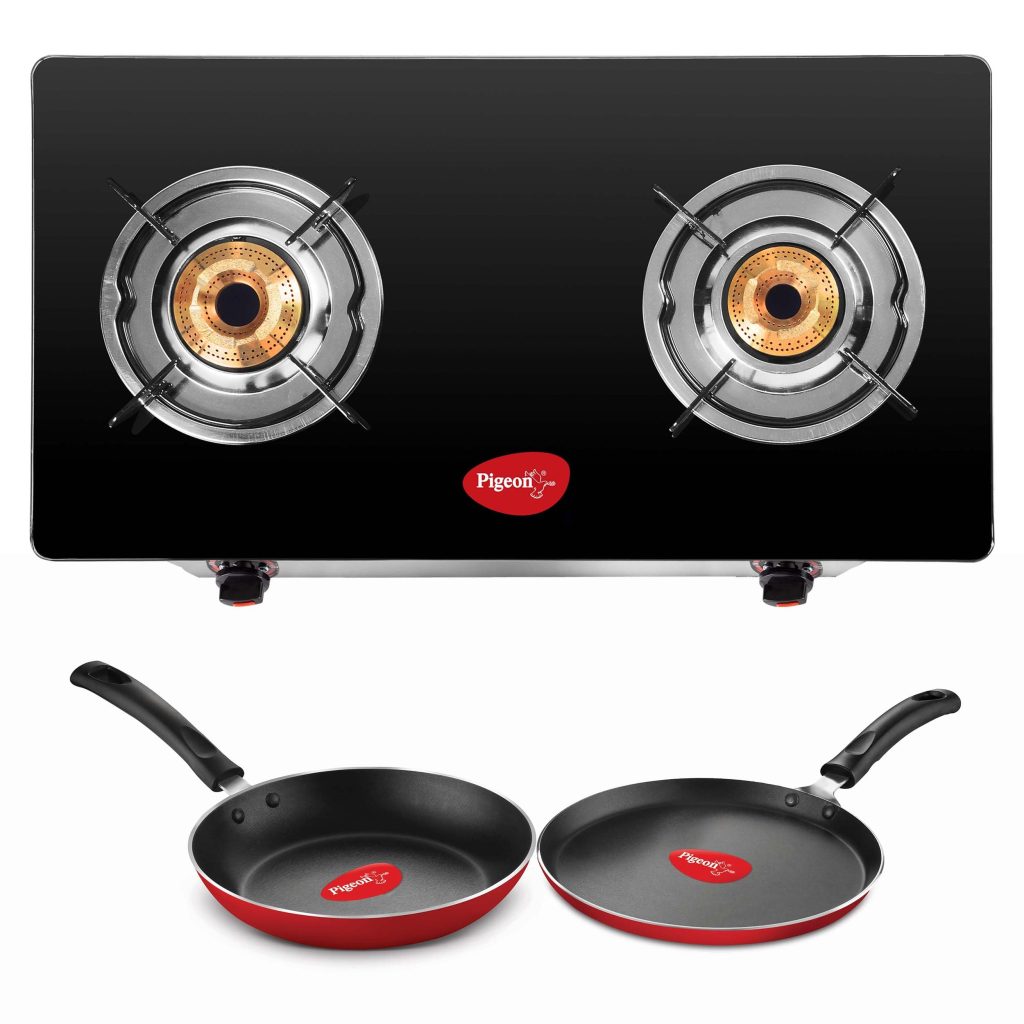
When it comes to cooking on a gas stove, the right cookware material can truly make a world of difference. From conducting heat evenly to maximizing efficiency, the material you choose can greatly impact the taste and quality of your meals. In this carefully curated list, I have researched and tested various materials to bring you the crème de la crème of cookware options for your gas stove. So, get ready to embark on a culinary adventure, as we explore the top contenders, unlocking a whole new world of delicious possibilities!
Now that you’re ready to take your cooking game to the next level, it’s time to dive into the full list of the best cookware materials for gas stoves. Click here to discover all the exceptional products that will elevate your cooking experience and open up a world of gastronomic delight. Don’t settle for anything less than extraordinary when it comes to your cookware – let’s make your time in the kitchen truly unforgettable!
Things to Consider
Selecting the right cookware material for your gas stove is crucial as it directly impacts your cooking performance and the long-term durability of your pots and pans. Making the wrong choice not only results in subpar cooking results but also means wasting your hard-earned money on a product that won’t last. Let me guide you through the factors you should consider before purchasing cookware for your gas stove.Options and how to choose:
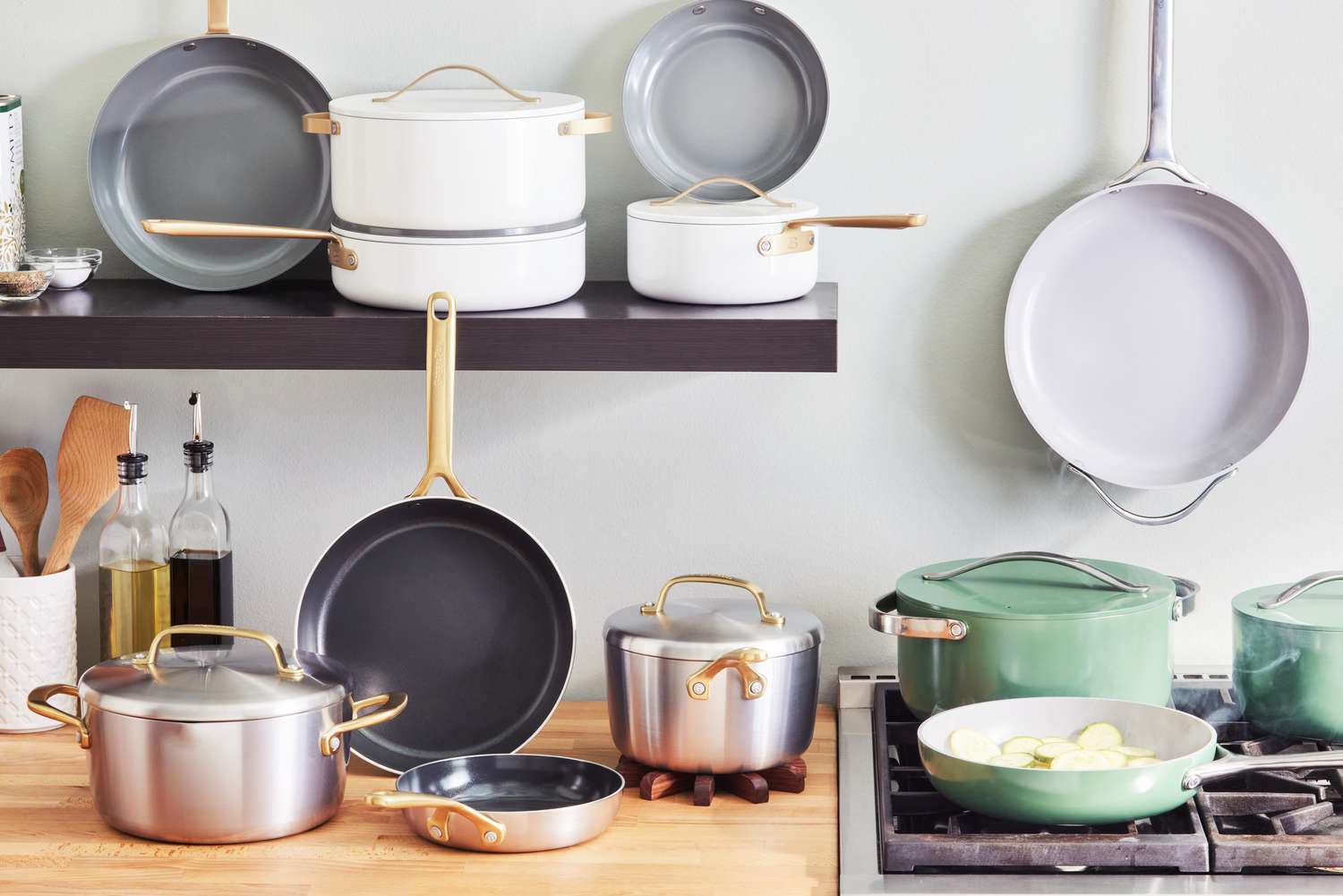
- Compatibility: Ensure that the cookware material you choose is suitable for use on a gas stove. Gas stoves produce an intense, direct flame compared to other types of stoves. Therefore, materials that have excellent heat conductivity, such as stainless steel, copper, and cast iron, are the best choices. Avoid materials like glass or ceramic that might crack or break under the high heat.
- Heat distribution: Look for cookware that offers even heat distribution to prevent hot spots that can lead to uneven cooking. Materials like copper and aluminum are known for their superior heat conductivity, which results in evenly cooked meals. Stainless steel cookware with an aluminum or copper core is also a great option.
- Durability: Consider the longevity of the cookware material. Gas stoves can subject cookware to constant exposure to high heat, causing some materials to warp or degrade over time. Opt for materials like stainless steel, cast iron, or carbon steel, which are renowned for their durability and ability to withstand high temperatures.
- Maintenance: Evaluate the ease of maintenance for the cookware material. Some materials, like stainless steel, are easy to clean and maintain, while others may require additional care. Non-stick coatings, for instance, can wear off over time and may need to be replaced periodically.
- Budget: While high-quality options like copper or multi-ply stainless steel can be more expensive, they often provide superior performance and durability. However, there are also affordable options available that offer decent heat conductivity and performance, such as cast iron or anodized aluminum.
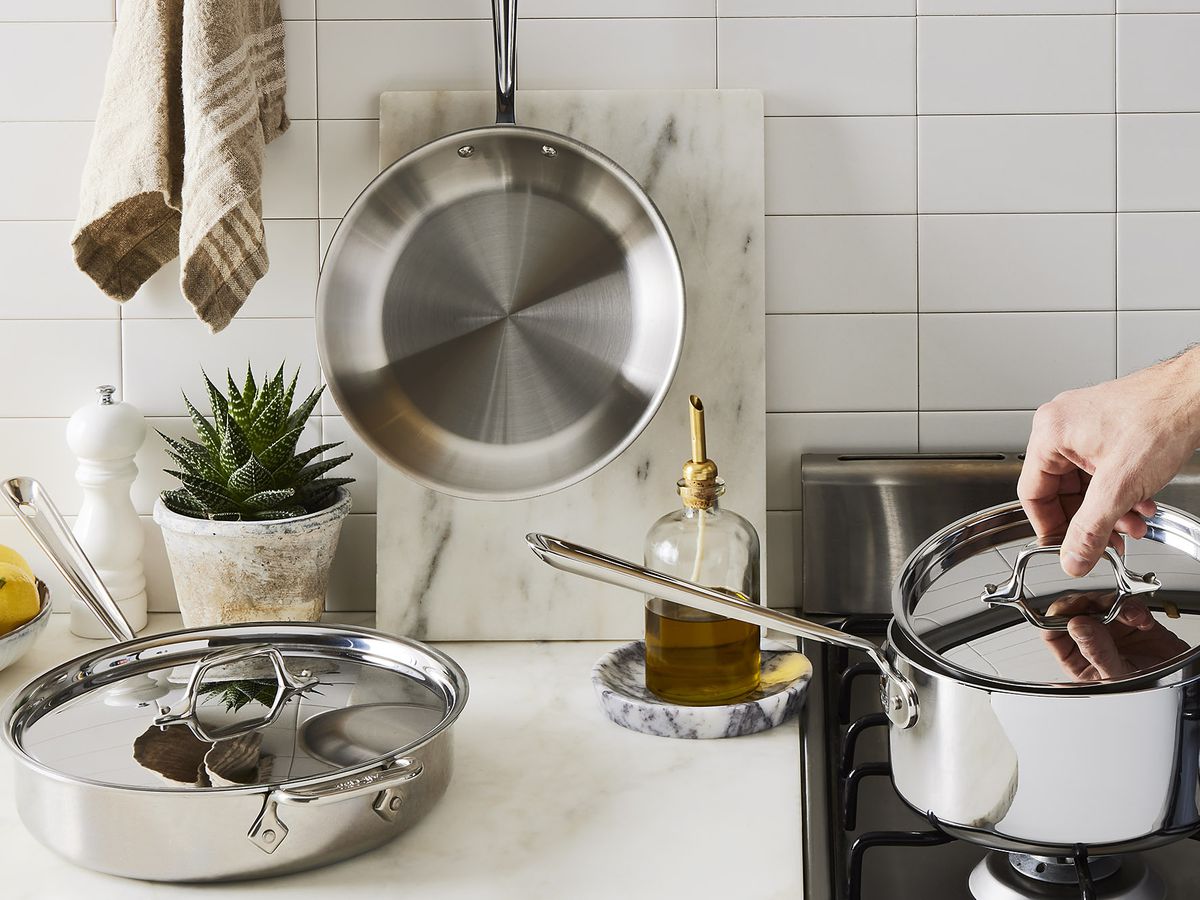
Important factors to consider:
- Heat conductivity
- Compatibility with gas stoves
- Even heat distribution
- Durability
- Maintenance and cleaning ease
When choosing cookware for your gas stove, you can ensure that you invest in a product that will enhance your cooking experience and withstand the test of time while staying within your budget.
How We Tested
When testing the best cookware material for a gas stove, we focused on evaluating various options to find the ideal choice for you. At our product reviews blog, we pride ourselves on doing the hard work for you, so you can make an informed decision with confidence.
Here’s how we’ve evaluated the cookware materials to determine the best one for your gas stove:
1. Heat Conductivity: We tested the different materials’ ability to evenly distribute heat across the cooking surface. This ensures that your food cooks consistently and prevents hot spots.
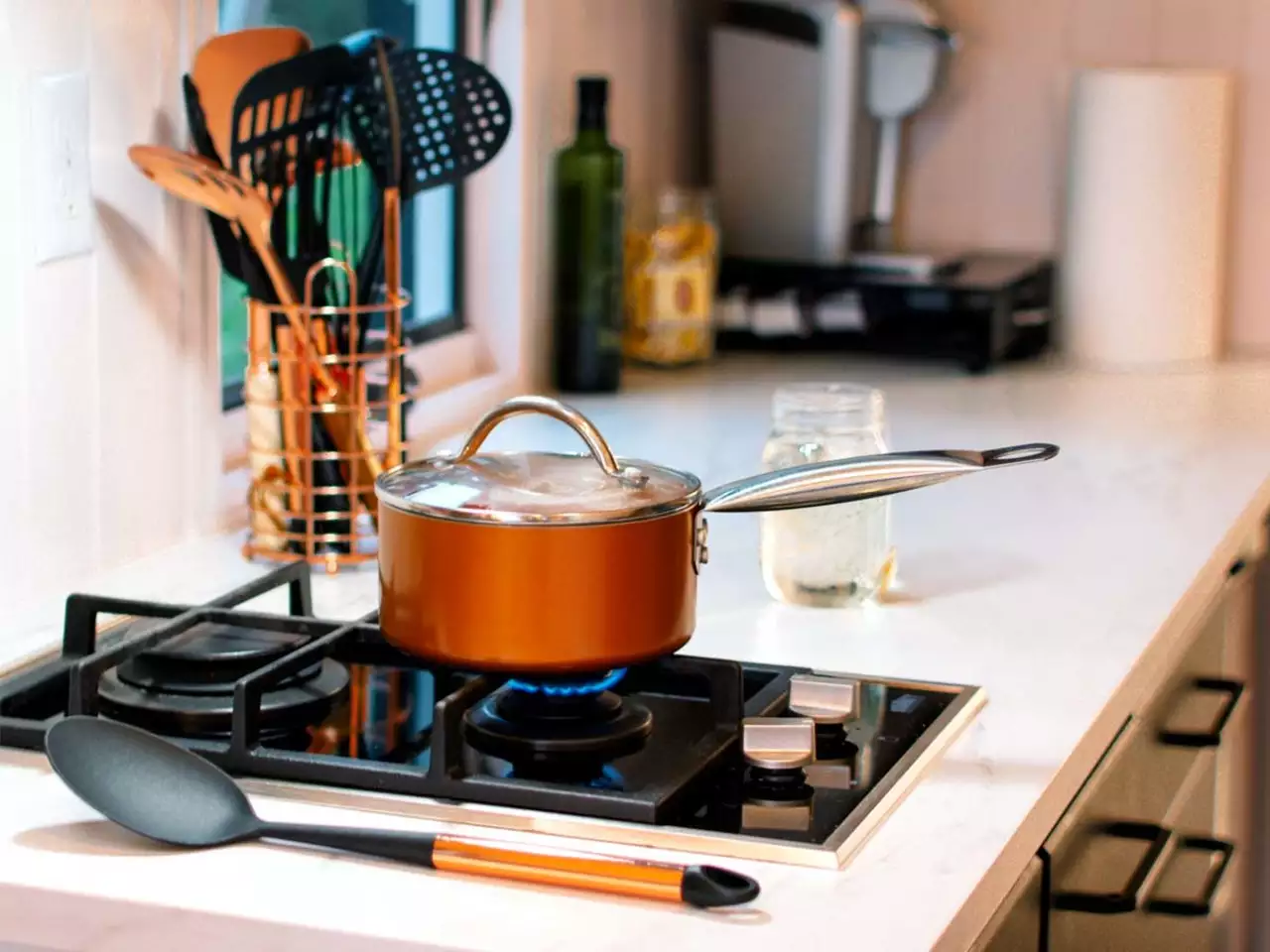
2. Durability: We examined the durability of each cookware material to ensure it could withstand the high temperatures and regular use of a gas stove. Nobody wants cookware that warps or deteriorates easily.
3. Compatibility with Gas Stoves: We tested how different materials reacted to the high flame and intense heat of a gas stove. It’s essential to choose cookware that can handle the open flame without any negative consequences.
4. Non-Reactivity: We assessed each material’s reactivity with acidic or alkaline ingredients to ensure that it does not alter the taste or quality of your food. Your cookware should not react with the flavors in your dishes.
5. Maintenance and Cleaning: We evaluated the ease of cleaning and maintaining each cookware material. Nobody wants to spend hours scrubbing pots and pans after a delicious meal.
When choosing the best cookware material for your gas stove, keep the following factors in mind:
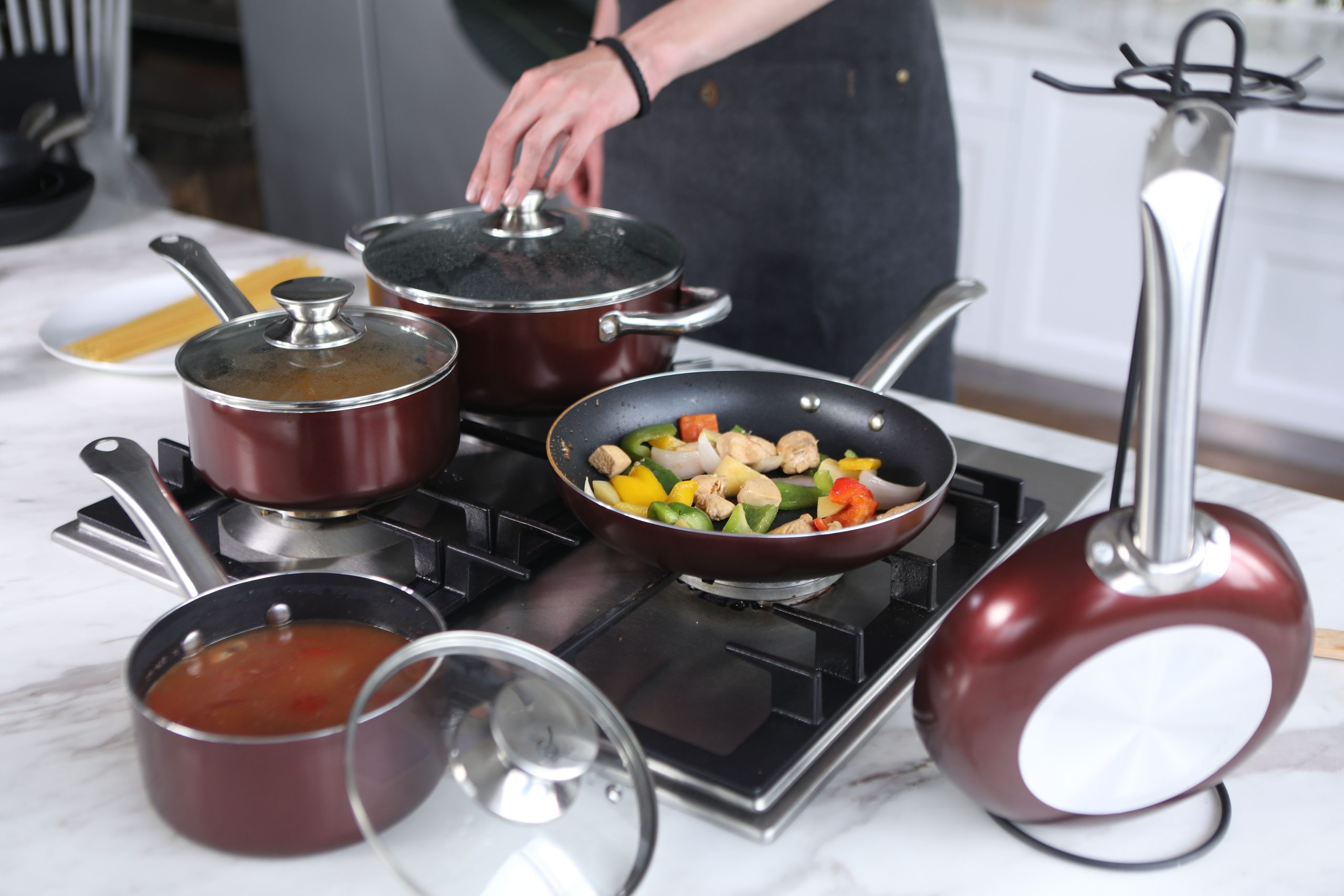
- Heat responsiveness: Look for a material that responds quickly to temperature changes, allowing you to have precise control over your cooking.
- Weight: Consider the weight of the cookware, as heavier materials may be more durable but can be cumbersome to handle.
- Cost: Think about your budget and choose a cookware material that suits your needs without breaking the bank.
- Compatibility with other cooktops: Consider whether the chosen material is also suitable for other cooking surfaces in case you plan to use it on different stoves.
- Style and aesthetics: Don’t forget about the appearance! Select cookware that matches your kitchen decor and personal preference.
Best Cookware Material
Gas stoves are versatile and popular for cooking due to their precise temperature control. When choosing cookware for a gas stove, it’s important to consider materials that can handle high heat and distribute it evenly. Here are some of the best cookware materials for gas stoves:
- Stainless Steel: Stainless steel cookware is a top choice for gas stoves. It’s durable, resistant to staining and discoloration, and can handle high heat without warping. Look for pots and pans with a thick, encapsulated aluminum or copper core to ensure even heat distribution.
- Cast Iron: Cast iron cookware, like skillets and Dutch ovens, is excellent for gas stoves. It retains and distributes heat evenly, making it perfect for searing, frying, and slow cooking. Seasoned cast iron also develops a non-stick surface over time.
- Carbon Steel: Carbon steel pans are similar to cast iron but lighter in weight. They heat up quickly and are ideal for high-heat cooking methods such as stir-frying. Like cast iron, carbon steel requires seasoning to maintain a non-stick surface.
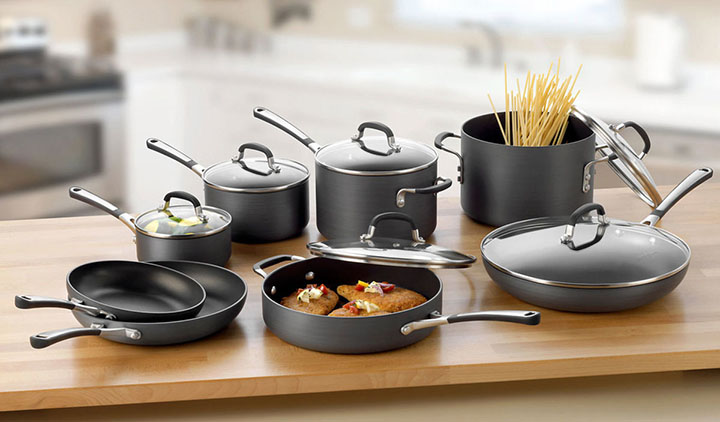
- Copper: Copper cookware offers excellent heat conductivity, which means it heats up quickly and responds to temperature changes rapidly. However, pure copper cookware can react with acidic foods, so it’s often lined with stainless steel or tin.
- Aluminum: Aluminum pans are affordable and heat up quickly, making them suitable for gas stoves. Anodized aluminum cookware is more durable and less likely to react with acidic ingredients. Some aluminum cookware also has a non-stick coating.
- Clad (Multi-Ply) Cookware: Clad cookware combines multiple layers of different materials, typically stainless steel, aluminum, and sometimes copper. This construction provides the benefits of each material: even heating, durability, and resistance to staining.
- Enamel-coated Cast Iron: Enameled cast iron cookware, like Dutch ovens, combines the heat retention and even heating of cast iron with a non-reactive enamel coating. It’s suitable for gas stoves and is easy to clean.
- Non-Stick: While non-stick cookware can work well on gas stoves, be cautious with high heat, as excessive heat can damage the non-stick coating over time. Look for non-stick cookware with a PFOA-free coating for safety.
When using cookware on a gas stove, be mindful of the flame size. Adjust the flame to match the size of the cookware’s base for efficient heating and to prevent flames from reaching the sides of the cookware, which can cause damage or uneven cooking. Proper care and maintenance of your cookware will also extend its lifespan and performance on a gas stove.
